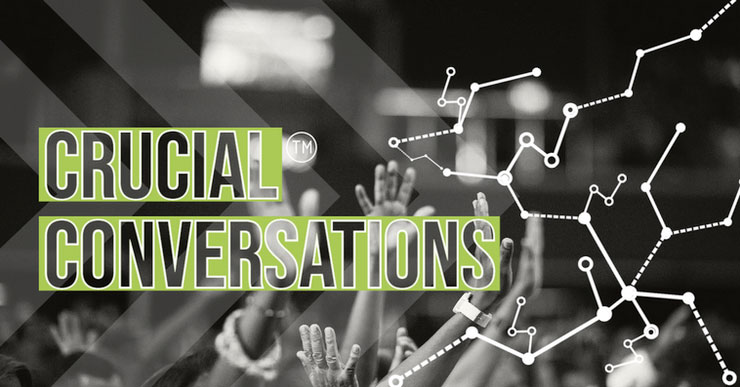The Black Lives Matter and anti-racism movement have come to the forefront of the
consciousness of humanity around the world. As a result, individuals, municipalities, and businesses are working to assess their role, responsibility, and accountability in addressing both overt and hidden systemic racism in policies, procedures, and their enforcement.
A critical, and often first step of this assessment is referred to as “crucial conversations.” These conversations are vital as so many work to encourage diversity, create environments that foster authentic relationships, and move the needle toward creating a more equitable society.
But what exactly are crucial conversations, and how should we go about conducting them to achieve the best possible results?
- There are several factors that make a conversation crucial:
- Opinions differ
- The stakes are high
- Emotions are high
- Subject matter is uncomfortable or awkward.
- Participants are nervous or anxious about how to engage or respond.
To put it another way, these are conversations that require real courage. They can be tense and uncomfortable, and can only be successful if all participants come into the conversation with compassion for one another, confidence in their own ability to listen and learn, and the desire to collaborate in pursuit of racial justice. While many of us have engaged in crucial conversations centered on performance evaluations, corrective action, and workplace conflict, crucial conversations centered on Diversity, Inclusion, and Equity require a unique approach with a unique intentional focus.
Many of our friends and clients have agreed to engage in such conversations.
This is an important first step. But what’s next?
How to have a crucial conversation?
Crucial conversations can be challenging. But if the participants do a little homework before, it can contribute to the success of the conversation.
- We suggest the following discussion agreements for every crucial conversation:
- Respect your fellow participants and their opinions.
- Have a positive, open attitude.
- Be curious and be prepared to listen to others.
- Commit to finding and sticking to a shared purpose or goal.
- Acknowledge other opinions, and do not dismiss them.
- Be direct. Speak plainly, simply, and honestly.
- Use “I” when speaking about personal experiences or your journey.
- Allow for more than one reality.
- Understand and keep in mind the ultimate outcome: a more inclusive and equitable society.
As a society, we have a long way to go until we achieve equity. Crucial conversations are the start of our journey. The road ahead may be daunting, but engaging in productive and successful crucial conversations can serve as a catalyst for the tough work that lays ahead.
Patterson, K., McMillan, R., Switzler, A., & Grenny, J. (2012). Crucial conversations: Tools for talking when stakes are high. New York, NY: McGraw-Hill.
#teamAthena #CrucialConversations #Humanity







